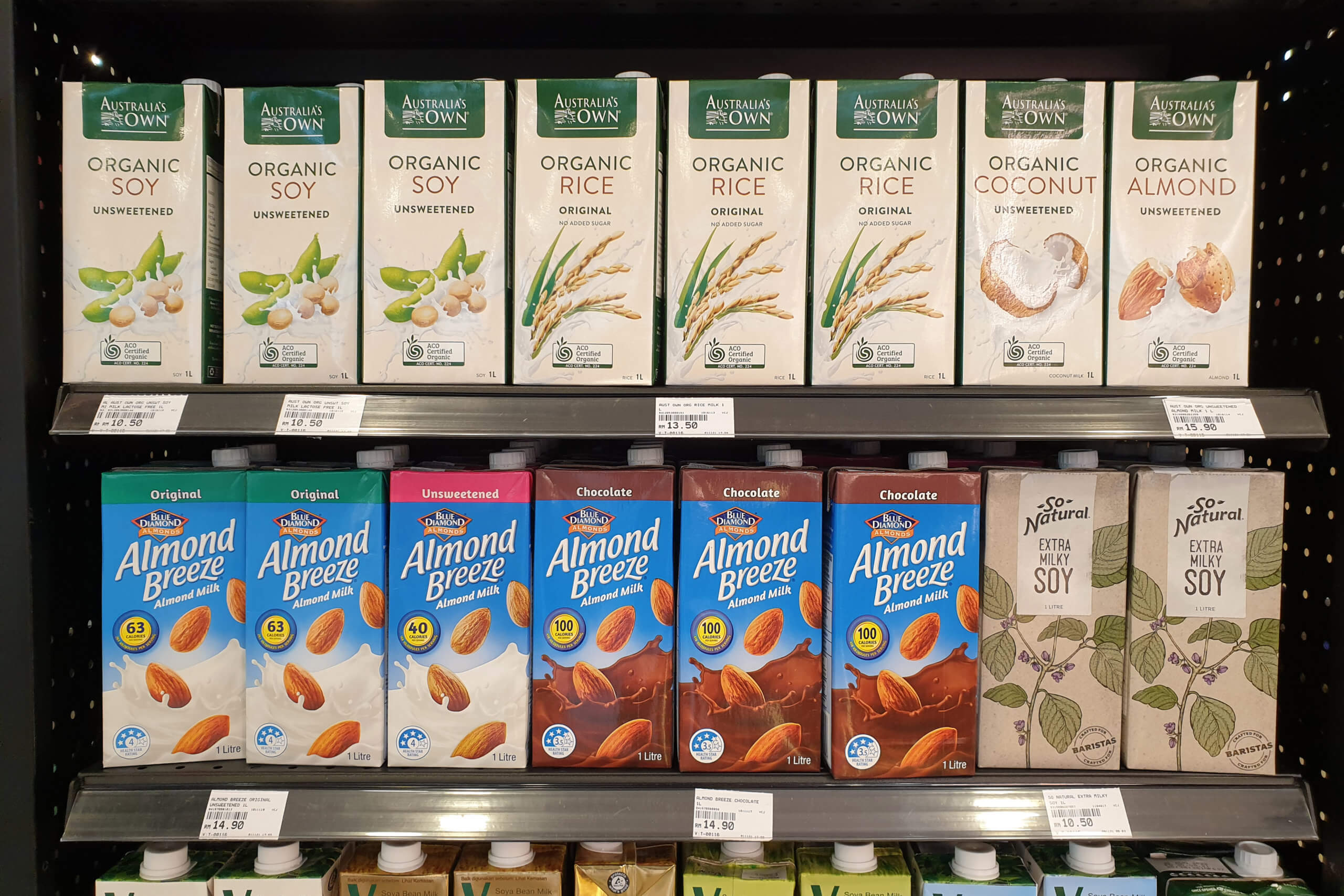As people continue to move away from milk and dairy due to intolerances or simply dietary preferences in general, plant-based alternatives are rising to the top. Since some essential minerals aren’t always required to be included on the Nutrition Facts label, consumers may not have a full picture on how they are meeting their dietary needs with the products. After analyzing various plant-based milks on the market, researchers from the Institute for Food Safety and Health are showing differences in mineral content depending on type and brand.
“Plant-based milk alternatives have been growing in popularity, but there’s not a lot known about the mineral content of these products, especially in the U.S.,” says Ben Redan, Ph.D., research chemist at the U.S. Food and Drug Administration (FDA), who is the principal investigator on the project, in a statement. “Although they can be voluntarily declared, from a regulatory perspective, these minerals are not always required to be on the Nutrition Facts label.”
Inconsistencies with these drinks and not requiring minerals to be on labels don’t help improve public awareness about the nutrition they receive from these beverages. This isn’t good for people who need to be extra mindful of adequate micronutrient intake, such as vegans and vegetarians.
To analyze nutrient content, the researchers analyzed a variety of locally available plant-based beverages that were sold under different brand names. Each product was made from a base of almond, cashew, coconut, hemp, oat, pea, rice or soy. Inductively coupled-mass spectrometry was used to calibrate the minerals in 85 samples. The team then used statistical analysis and found several variations in mineral content across milk types, and even within the same milk type but simply different brands.
Notably, pea-based drinks contained the most phosphorus, selenium and zinc, while soy drinks topped all in magnesium content.
Most interestingly out of the results is that pea and soy beverages were the only drinks to have higher amounts of phosphorus, zinc, magnesium, and selenium than cow’s milk. “These plant-based milk alternatives could be important sources of these micronutrients if you’re trying to reach the recommended dietary allowances for them,” explains Redan. “That’s why these data points are important to get out to the public.”
The research team hopes that their results help increase transparency within nutrition science, since this isn’t the only area where inconsistencies are seen within the field. They also anticipate that their research efforts will help dairy-free milk consumers have a better idea of the nutrients they will get from these products, since a primary concern for many making the switch is if they will get comparable nutrition to that of dairy milk.

8 oz of milk (real milk from a cow) has the same amount of protein as a half gallon, 64 oz, of almond “milk”.
How can this be true?
8 oz of almond “milk” is made from 3 almonds, water, and food coloring